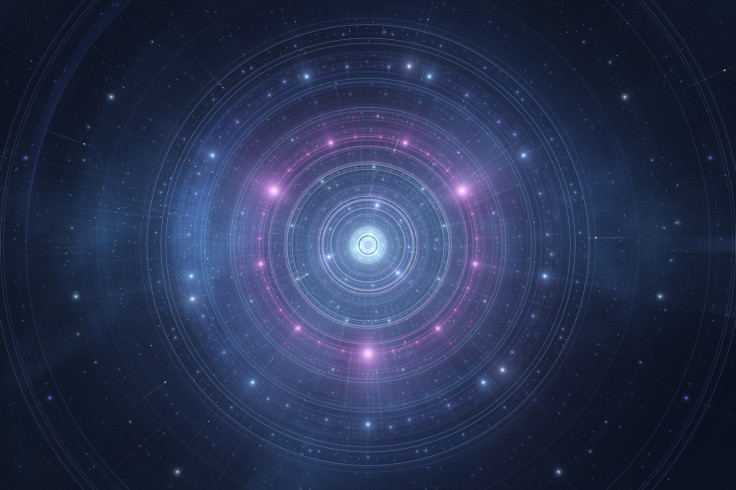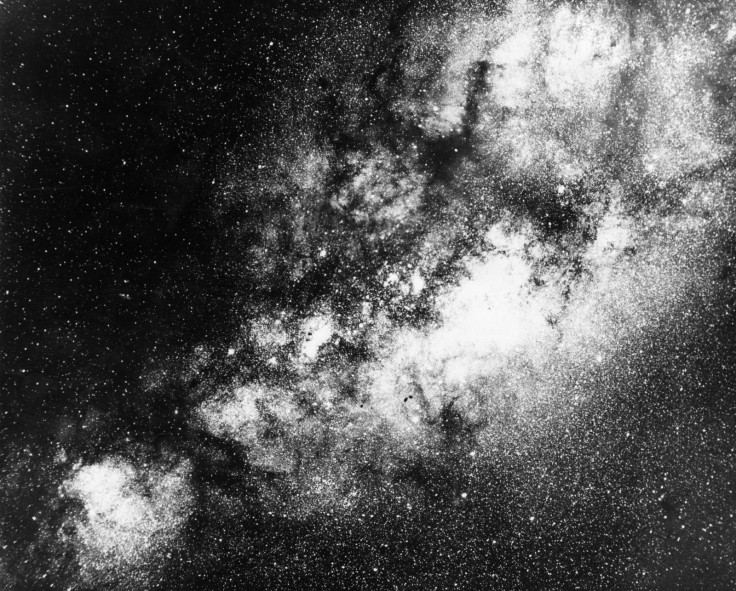Why do sceptics love their horoscopes?
75% of the population at least occasionally read their horoscope but only 25% say they believe.

Your morning coffee is ready and, oh, what's this? Jupiter is in Libra. Communication is important for Leos today. Many of us take occasional looks at our horoscopes but most say they don't believe in it. People who are otherwise sceptical take a moment, sometimes every day, to see what the position of the stars is saying about their day.
"Surveys typically show that around about 75% of the population at least sometimes read their horoscope," says Christopher French, professor of psychology at Goldsmiths University, "and about 25% say they believe in astrology." That would leave half of the public reading horoscopes without believing any of it. So why do it?
"People are attracted to it because it's fun," says Annabel Gat, astrologer for the website Broadly, "and it's ok that it's fun." Gat says she gets lots of correspondence from readers of her horoscopes saying how much they just enjoy them - maybe today's was funny or an interesting coincidence took place after they read it. "I love coincidences, coincidences are magical, they give us a high," she says, "I'm so happy if I can give someone that with my horoscopes."
Gat says that sun sign astrology can fill a similar gap to the feeling you might get playing a game of dice: "You get a little rush from it, it's a little bit addictive." Which is maybe where it can also start to have downsides.
French, a self-described sceptic, sees the fun side of horoscopes slightly differently - even he reads his sometimes, he says it's simply for entertainment: "It's always quite amusing if you see something that really fits very, very well and equally amusing when you get a horoscope that is so totally the opposite to the day that you've had that it brings a wry smile to your face."
Astrology as mythology
For those who regularly read what the zodiac says each day without believing the planets are affecting their daily lives, the entertainment argument doesn't quite cut it - the rush is there but it feels more meaningful. Are they just denying a belief in astrology?
"I always really loved mythology, that was my attraction to astrology," says Gat. Astrology has a long history that has taken in numerous cultures and thinkers. For a while it was considered fairly de rigueur science until objections about its validity gained enough traction to expel it to the sidelines, now a pseudoscience.
"Most serious astrologers... would actually dismiss sun sign astrology and say the real thing is much more complex."
"Astrology was developed over hundreds and hundreds and hundreds of years and these are all stories and mythologies that we've passed down to one another," says Gat, "so it doesn't matter if it's true at all, what matters is that this is part of our storytelling as people." Horoscopes for those who are interested enough could serve to let you feel connected to a historical and cultural tradition, to feel part of a larger societal phenomena.
Don't take sun signs so seriously
But how many people really know the ins and outs of astrology and its long, storied history? For those who are interested and even many astrologers, sun sign astrology - the zodiac you'll see in the newspaper - isn't even thought to be a serious part of astrology. "Most serious astrologers... would actually dismiss sun sign astrology and say the real thing is much more complex," says French, whose academic focus has been on people who believe in the paranormal.

For those who do go deeper into the mythology, the addictive side can rear up. French talks of people who get hooked on telephone line astrologers and end up spending "a small fortune" on it. Even Gat says that astrology shouldn't be taken so seriously: "I don't think you should ever really place any bets on astrology, I don't think anyone should believe in astrology, it's not something to believe in, it's a fun thing to read, and it's a really fun way to reflect on your day and reflect on yourself."
When astrology starts to become an overarching guide in your life, the real issues with it come up. While in the White House, Ronald and Nancy Reagan famously had a secret astrologer who was said to influence the timing of schedules - though president Reagan said that astrology had not played a part in any policy decisions. As French said when he recounted the Reagan story, "that's pretty worrying".
Gat says it's this kind of correspondence that she doesn't like receiving. "What I don't want to hear is: 'I'm following your horoscopes every single day so I can plan exactly when I'm going to make this move and this other move', I don't really want people to use my horoscopes that way because I also want them to use common sense and think about their lives."
Finding order
Horoscopes can also act as a way to find order in an otherwise seemingly indifferent universe, taking the same space that sceptics argue religion does. Whether or not you're more likely to start believing in these things could be determined by a psychological variant known as your 'locus of control'. French explains that your locus of control is essentially how much control you think you have over your own life. People fall on a spectrum between internal and external locuses. People with an internal locus of control are "the kind of person who thinks that your life is the way it is primarily due to your own actions, your own decisions; you're responsible for it", while on the other side people with an external locus of control "are people who by and large believe that things just happen to them, there are forces out there that are beyond your control".
People with a strong external locus of control as more likely to believe that the position of stars affects their lives, they're also more likely to believe in conspiracy theories and generally in the paranormal, says French.

But for those who are otherwise sceptical, who don't see shadows in the world controlling their lives, is there a good reason to read your horoscope? Well, there's not really anything bad about self-reflection. Each day taking a moment to be a bit introspective and ask questions about your life is surely a healthy action - the statements in a horoscope can be a jumping off point for that. Virgos should focus on their home life today - but actually, how is your home life going?
The therapeutic zodiac
French says he's heard of therapists using horoscopes during sessions: "Therapists who don't themselves believe in astrology but might just use that as a basis to get the conversation going, give a framework for reflection and thinking about people's lives and issues... taking that time out once a day just to do that is probably not a bad thing to do."
It's also what Gat says she wants people who read her horoscopes to be doing. "Finding order in the world is definitely a reason why some people read them but I hope it's not the reason most people read them. I hope that they're reading them for fun and for self reflection and to enjoy this tradition that humanity has had for hundreds of years."
But the most important question is saved for last: what's the year ahead like for Leos? Jupiter is in Libra so communication is big this year, says Gat, "things have felt kind of up in the air and this fall you're really trying to get things settled down." Things are a bit more serious and that can be awkward for party-hard Leos.
"Oh man, so true," said this reporter.
© Copyright IBTimes 2025. All rights reserved.




















